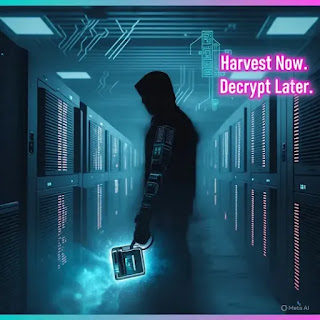A developer just wanted to fix a problem faster.
They were debugging a query. The error message made no sense.
The documentation was outdated. As usual.
So they did what millions of capable employees now do every day:
They copied a real snippet from work.
Pasted it into ChatGPT. Got a clean, helpful answer.
Problem solved.
Ticket closed.
No alarms. No warnings.
And without realizing it, company secrets just left the building.
---
This isn't an employee failure
No one was careless.
No one was malicious.
No one thought twice.
Because nothing in the system told them they should.
This is the uncomfortable truth most companies avoid:
When smart people repeatedly do the same risky thing, the system is teaching them to do it.
---
Your DLP didn't fail. It was watching the wrong place.
Most security stacks are still designed for an older world.
They monitor:
- Email attachments
- File uploads
- API traffic
- Known SaaS destinations
But the leak didn't happen there.
It happened in a browser. Via clipboard. Through a prompt.
Copy → paste → submit.
That path bypasses most traditional controls completely.
So when teams say, "Our DLP failed", what they really mean is:
Our threat model never included this behavior.
---
Why blocking ChatGPT backfires
The reflex response is predictable:
"Block ChatGPT."
"Block Claude."
"Block all external LLMs."
On paper, this looks responsible.
In practice, it produces:
- Personal device usage
- Browser extensions
- Smaller, fragmented pastes
- Silence instead of questions
Risk doesn't disappear. It just becomes invisible.
And once engineers stop talking to security, you've lost the most important signal you had.
---
This is a system design problem, not an AI problem
Developers optimize for: Speed, Accuracy, Low friction
Security teams often optimize for: Control, Policy, After-the-fact detection
When those incentives collide, the faster system wins.
Every time.
So the real question isn't "How do we stop people?"
It's:
How do we redesign the system so the safe path is the fast path?
---
Step 1: Provide an approved AI path people actually want to use
An internal or enterprise-approved LLM only works if it's:
- Fast
- Reliable
- Easy to access (SSO, no tickets)
- Good enough to replace public tools
If the "safe" tool feels worse than ChatGPT, it will be ignored.
This isn't about trust. It's about usability.
People don't bypass controls to be rebellious. They bypass them to get work done.
---
Step 2: Stop trying to read prompts. Watch behavior instead.
Trying to inspect every prompt is a dead end.
You won't reliably see:
- What was pasted
- How it was transformed
- Where it went
But you can see behaviors that matter:
- Large clipboard copy events
- Copying from production systems into browsers
- Structured data patterns
- Sudden changes in paste volume
You don't need the content to detect the risk.
Attackers already know this.
Defenders are just catching up.
---
Step 3: Keep secrets from appearing on screens in the first place
The most effective control is also the least glamorous:
Don't expose raw secrets unless absolutely necessary.
That means:
- Masking sensitive fields by default
- Tokenizing internal identifiers
- Treating "view" as a privilege, not a default
- Restricting full production outputs
If someone never sees the secret, they can't paste it.
This is boring security.
It's also the kind that works.
---
Step 4: Train instincts, not compliance
Most AI training fails because it sounds like legal language.
"Employees must not input confidential information into AI tools."
That sentence does not survive:
- Deadlines
- Curiosity
- Pressure
A better rule is simpler:
If it would trigger an incident report, it doesn't belong in a prompt.
No flowcharts.
No policy PDFs.
Just a mental shortcut people can actually use.
---
Step 5: Explain the risk in executive language
Executives don't need to understand tokens or embeddings.
They understand this immediately:
AI prompts are unlogged outbound data transfers with no recall.
Once the risk is framed that way:
- Budget appears
- Tradeoffs become explicit
- Ownership becomes clear
Not because of fear.
Because of clarity.
---
The real lesson
This wasn't a junior developer problem.
It wasn't an AI problem.
It wasn't negligence.
It was a system built for a world where copy-paste wasn't a data exfiltration vector.
That world is gone.
The prompt is the new USB drive.
And if you're not actively redesigning for that reality, there's a good chance this is already happening inside your company- quietly, efficiently, and with the best intentions.
That's what makes it dangerous.
.png)




















